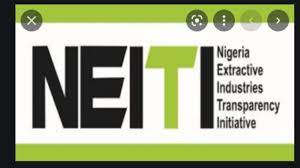Last updated on August 17, 2023
Nigeria has generated a staggering $741.5 billion from the oil and gas sector, and N635.3 billion from the solid minerals sector between 1999 and 2020, over a span of 21 years, according to the Nigeria Extractive Industries Transparency Initiative (NEITI).
The Executive Secretary of NEITI, Ogbonnaya Orji, made this announcement during a stakeholders’ roundtable organized by the agency in Abuja. The purpose of the event was to review and approve NEITI’s 2021 Audit Reports for the oil, gas, and solid minerals sectors.
The independent administrators, Messrs Taju Audu & Co, and Amedu Onekpe & Co, submitted the latest audit reports to the agency.
Addressing the attendees, Orji stated, “To date, NEITI has conducted a total of 13 cycles of reconciliatory reports in the oil and gas sector, and 11 cycles of reports in the solid minerals sector. These reports have revealed a total revenue of $741.48 billion earned by the government from the oil and gas sector and N635.3 billion from the solid minerals sector.”
“These earnings were accumulated between the years 1999 and 2020 in the oil and gas sector and from 2006 to 2020 in the solid minerals sector,” Orji continued. “Additionally, NEITI’s reports have disclosed that Nigeria has lost over 619.7 million barrels of crude oil, valued at $46.16 billion or N16.25 trillion, from theft and sabotage between 2009 and 2020.”
The loss of over 140,000 barrels of crude, valued at $10.7 million per day, is a significant concern. Furthermore, NEITI has reported on subsidy payments from 2005 to 2021 and highlighted the detrimental impact they have had on the nation.
Orji revealed that the reports also unveiled that Nigeria has spent $74.39 billion, equivalent to N13.7 trillion. “Based on these figures, Nigeria has been spending an average of N805.7 billion annually, N67.1 billion monthly, or N2.2 billion daily,” he added.
Commenting on the 2021 NEITI Industry Reports for the oil, gas, and mining industries, Orji stated that they covered a total of 69 companies and 12 government agencies in the oil and gas sector. The solid minerals sector report covered 1,214 companies and three government agencies.
“The objectives of these reports were to determine the quantities of minerals produced and utilized in the country. Additionally, the reports aimed to establish the revenue paid by oil, gas, and mining companies, as well as the actual amount of revenue received by the government,” Orji explained.
He further emphasized NEITI’s focus areas, which include identifying investments made by the Federation or the Federal Government in the oil, gas, and mining industries. NEITI also tracks subsidy payments, company remittances, and liabilities.
By shedding light on the financial landscape of Nigeria’s extractive industries, NEITI plays a crucial role in promoting transparency and accountability. As the nation continues to navigate the challenges and opportunities within these sectors, it is imperative to ensure that the revenue generated is utilized for the benefit and development of all Nigerians.
Punch/Hauwa Abu
